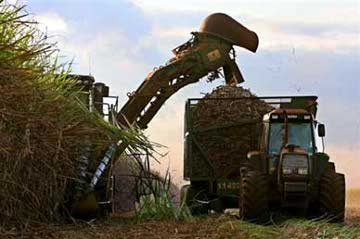Low carbon fuel could raise California fuel prices sharply

The Low Carbon Fuel Standard (LCFS), which will be implemented in California starting in January after the defeat of Prop 23, may be an instructive example of the Law of Unintended Consequences. It mandates that carbon levels in fuel be lowered 10% by 2020, by using biofuel or purchasing emission credits. This is certainly a laudable goal.
But Houston, we have a problem. California already has steep gas prices compared to other states. LCFS will almost certainly mean even higher prices. CalWatchdog, in a comprehensive article on LCFS, cites two studies saying that nationwide LCFS would increase prices by 61 cents per gallon. But California is going this alone (so far), something which definitely puts it at a competitive disadvantage even as it helps the environment.
Very little ethanol is made in California, so it will have to be trucked in or brought by train, a practice that hardly seems low-carbon. Plus, ethanol from corn in the Midwest is not allowable because it is more carbon intensive than gasoline. But sugarcane ethanol from Brazil is okay, because it is lower carbon. But does that low carbon estimate also include shipping it by boat for several thousand miles? Does it factor in the obvious damage by overuse to Brazilian crop and former forest land by being used so extensively for sugarcane - as well as it not being used for food crops? I'm guessing it does not.
California has 25 million registered vehicles according to the DMV. All of them will now be using more biofuel. But there are no new refineries planned for California, which is at least partly due to regulatory pressures. So where will the biofuel come from? This reminds me a bit of the strict rules in California against coal plants, which seem very tree-huggy indeed until you realize that cities like Los Angeles get much of their power from coal plants in other states. This is not just environmentally questionable, it's also hypocritical.
The other alternative, buying carbon emissions, seems unworkable and insufficient for the massive scale needed. Plus, cap and trade can be gamed and emissions markets can be manipulated. There are reasons that investment banks favor such practices and one would have to be painfully naive to assume that concerns about climate change were primary.
So, California will need vastly more biofuel yet has no obvious way to get it. CalWatchdog suggests this may be deliberate state policy. They want us to drive less and thus use less petroleum. But the population is rising and so are miles traveled. This would appear to be a train wreck in the making: too many vehicles and not enough biofuel.
There seems no easy solution here. The state is charging ahead on plans for a low-carbon economy but the infrastructure to support it does not yet exist. If California wants to be genuinely low-carbon, then the best possible solution would be to produce biofuel within its own borders. Also, the economic impact of higher gas prices in California will not help existing businesses or encourage new ones to move here.



